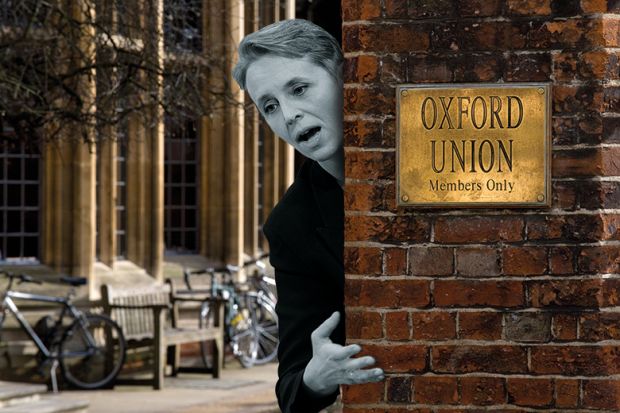Four years after the Conservative Party included a commitment to strengthen academic freedom and free speech at universities in its manifesto and more than two years after a bill was introduced to Parliament, the Higher Education (Freedom of Speech) Bill finally cleared the last hurdle in the House of Lords last week and has become law. In that time, the UK has had three prime ministers, four universities ministers and almost two and a half million graduating students.
The concerns of universities over some of the details of the act are well established and questions over the evidence used to demonstrate the need to replace the previous, comprehensive legal framework protecting freedom of speech at universities remain. However, focus must now turn to implementation and what this new legislation will mean in practice for students, staff, external speakers, universities and students’ unions.
So what will change? First, there is a new legal requirement for universities to “promote” freedom of speech that sits alongside a beefed-up requirement to take reasonably practicable steps to protect freedom of speech within the law. This might feel like a minor semantic shift, but it is a different standard and to comply with it universities will need to look closely at things like training on free speech for new students, contractual terms for staff, and codes of practice on handling free speech disputes.
It will also be challenging to judge how this new standard, along with an associated condition of university registration, interacts with other duties and legislation related to freedom of speech. These include the Equality Act and the Prevent Duty. Questions over how these obligations should be balanced are serious and need to be examined closely by the Office for Students, in conversation with the sector, over the coming months.
Clear guidance will be required on how the OfS will approach its new duties, including the basis on which it will investigate universities and students’ unions when there are free speech concerns. We would hope to see investigations and enforcement actions launched only when there are legitimate, substantiated concerns, as opposed to individual media reports or calls from third parties.
The stakes have been raised by the creation of a statutory tort, which could open universities and students’ unions to civil legal claims if they get the balance of legal duties wrong – even when they are acting in good faith in the most complex cases. This risk is not something universities will take lightly.
Students’ unions, which will be regulated for the first time by the OfS, will also need support to navigate the implications of this legislation. A number of MPs and peers raised the possibility of legal risks pushing some unions to host fewer challenging or provocative speakers. This would be the last thing anyone wants to see and the opposite of what advocates of the legislation intended.
The threat of frivolous or vexatious claims tying universities and students’ unions up in legal quagmires has been reduced due to the welcome decision by Parliament to ensure that in a majority of cases, complainants will have to pursue redress through a new OfS free speech complaint scheme or via the Office of the Independent Adjudicator for Higher Education (OIA) before launching a civil action.
The OfS complaints scheme is likely to be one of the first elements introduced by the act to go out for consultation. It will need to be designed carefully to ensure it offers a clear and easily accessible route for people who believe their rights have been infringed. It will also need to operate in a way that complements rather than duplicates the OIA’s scheme. The two organisations will need to work closely together to ensure appropriate routes to redress are understood by complainants.
The requirements of the legislation will also see the OfS take on new responsibilities for monitoring information relating to overseas partnerships, R&D and commercial deals, on the grounds that these have the potential to restrict free speech. As with the new condition of registration, it’s important we get the maximum protections for free speech and academic freedom with minimum bureaucracy. Crucial here will be delivering the risk-based exemptions for reporting on overseas partnerships with friendly states that were promised during the passage of the legislation.
We also need an appropriate reporting threshold so universities and the OfS aren’t tied up in the detail of small partnerships that are unrelated to free speech or academic freedom. More red tape diverts resources away from teaching students and risks stifling innovation and research.
Getting implementation of this act right will be no small job, but the sector is ready to work with the regulator as it starts to look closely at the detail of its new powers and responsibilities.
Even with an election on the horizon, it is crucial that the OfS resists political pressure to do a rush job on this. Proper consultation is vital if we are to have a system of protection for free speech that is workable for universities and – most importantly – is clear and understandable for students, staff and visiting speakers.
Jamie Roberts is policy manager at the Russell Group.
Register to continue
Why register?
- Registration is free and only takes a moment
- Once registered, you can read 3 articles a month
- Sign up for our newsletter
Subscribe
Or subscribe for unlimited access to:
- Unlimited access to news, views, insights & reviews
- Digital editions
- Digital access to THE’s university and college rankings analysis
Already registered or a current subscriber? Login








